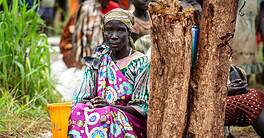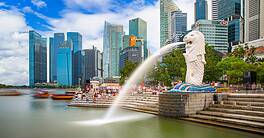From financial services to healthcare to tourism, the Emirates is exploring and expanding into new non-oil businesses.
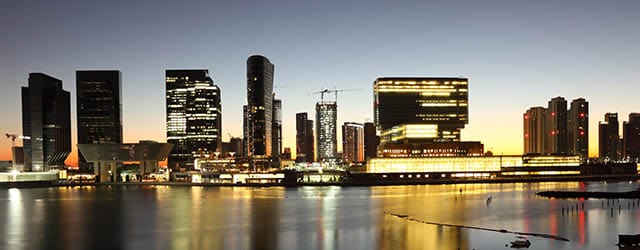
The United Arab Emirates got a head start among the GCC countries in diversifying its economy, although outside of Dubai it is still heavily reliant on oil income. The country, a federation of seven sheikhdoms, has large external savings that will serve it well in the period ahead, economists say. Meanwhile, the capital city of Abu Dhabi is making strides in developing tourism, transportation and financial services industries, as diversification continues.
Zeine Zeidane, head of the International Monetary Fund’s mission to the country, noted in May that the country faces low oil prices from a position of strength. “Past prudent macroeconomic policies have helped build large fiscal and external buffers, its economy is more diversified, and it has continued to benefit from its safe-haven status,” Zeidane said. The IMF team found that the UAE’s banking sector remains resilient and has adequate liquidity and capital buffers to withstand severe shocks.
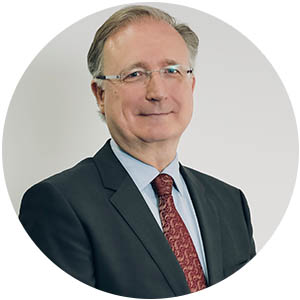
National Bank of Fujairah, leading bank for business in the UAE, has played a significant role in the country’s diversification. “We deliberately align our focus with the growth opportunities for the country, from trade and energy to hospitality, education and healthcare,” says Vince Cook, chief executive officer of NBF. “We have introduced new business solutions to respond to the growing sophistication in the market, from equipment finance to Islamic banking, extending our traditional gold business to include other commodities and the diamond trade, and developing a bespoke proposition for budding Emirati businesswomen.”
One of the first banks in the UAE to establish a dedicated business-banking unit, NBF remains committed to the small- and medium-enterprise sector, Cook says. “We have a respectable business-banking portfolio that consistently generates double-digit growth in its loan book,” he adds. “Unlike other players that have chosen to scale back from this segment in recent times, we are confident that we can work closely with our SME clients to ride out any short-term challenges and achieve further success.”
The bank’s recent performance illustrates the opportunities in the UAE, despite the relative slowdown in the global economy. Operating profit rose 18.5% in the first quarter of 2016, reflecting strong business growth. Noninterest income from the trade finance and advisory business was up 22.7% over the same period a year earlier. “Our traditionally strong role in trade finance gives us a relatively short-term loan book, which allows us to quickly adjust to changing market conditions,” Cook says. “Our financial position remains good, and we are well-positioned to take advantage of further growth opportunities in the UAE.”
Economists at Samba Financial Group in Riyadh said in a recent report that the UAE’s large external savings and low government debt mean the country can “follow a relatively gentle adjustment path, and spending in Dubai will remain elevated in preparation for Expo 2020.” The first world expo to take place in the Middle East, the Dubai expo is expected to attract 25 million visitors during its six-month run, beginning in October 2020. Data from Middle East business researcher MEED show the value of projects currently under way in Dubai to be near $50 billion, with another $320 billion in the planning stage.
“Meanwhile, the pressure on external balances from lower oil prices is mitigated by the fact that the UAE has a more diverse export base, including large revenues from tourism, transportation and logistics,” Samba’s economists say. The UAE also continues to attract healthy foreign investment flows, although Dubai’s property market has weakened.
Abu Dhabibased ADS Securities offers a view of how financial services are contributing to diversification too. “The financial services sector both generates and facilitates business, and in Abu Dhabi this role is increasing day by day,” says Philippe Ghanem, CEO and vice chairman. “The UAE has, in the last few years, become a growing contributor to global markets, whether through the over-the-counter volumes handled by ADS Securities, international investments [by local investors and wealth funds] or the growing number of business opportunities in the GCC region.”
Ghanem says the low oil prices have also helped accelerate development of new financial opportunities, such as corporate bond issuance. “The recent Etihad Airways Partners bond showed the international demand for good-quality UAE paper, with the issue fully subscribed within hours of its opening,” he says.
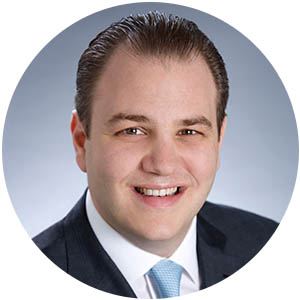
ADS Securities, founded in 2011, has become the center for foreign exchange trading for the wider region, Ghanem says. “We have moved from zero volume to trading up to $16 billion a day, with offices in London, Hong Kong and Abu Dhabi,” he says. “We have invested heavily in technology, developing our own platform and systems, which are available in Arabic, and providing new solutions for the region.”
The firm’s OREX Mobile app is the first to offer multi-asset full trading functionality in Arabic. “There has always been a lot of trading in the region, but this was historically focused on commodities and real estate,” Ghanem says. “The financial crisis of ’08 led to investors’ moving into foreign exchange and other products. As traders have become more experienced, they have moved more into derivative products to hedge their currency exposure.”
Ghanem says each of ADS Securities’ business areas has a different focus and flow of funds. The global markets and investment banking business is expanding to the East. “We now have a team based in Hong Kong, and we expect to see work from the Asia-Pacific region grow quickly,” Ghanem says. “For our brokerage business, we already have technology established in London, New York and Tokyo, and our flows tend to be global. Our wealth and asset management team is still focused on Europe, as the UAE is quickly becoming their offshore investment center of choice.”
Meanwhile, Abu Dhabi’s financial free zone, Abu Dhabi Global Market, located in a cluster of high-rises on Al Maryah Island, opened last October and is taking applications from potential member firms. It is expected to focus on private banking and asset management before broadening to other financial services.
Saadiyat Island, in another part of the city, will be a cultural center, with a branch of the Louvre Museum scheduled to open there at the end of this year. Construction could begin soon on the long-delayed Guggenheim Abu Dhabi. As the tourism market expands in line with the fast growth of Etihad Airways, Abu Dhabi is using build, operate and transfer (BOT) project financing to further develop the sector. Al Barakah International Investments recently announced the first such project, Al Qana, a $230 million marina club with residential apartments, stores and a cinema. It will have Abu Dhabi’s first aquarium, bigger than the one in Dubai Mall.
Meanwhile, the UAE is birthing entrepreneurs, according to a study by LinkedIn. The number of LinkedIn members in the UAE who identify themselves as entrepreneurs nearly doubled last year. Much of the increase was in business services.

